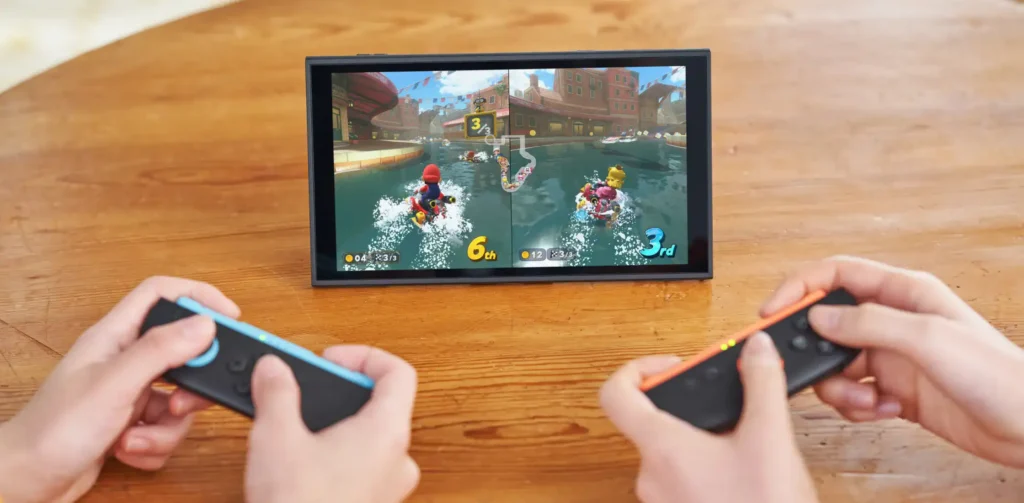- Web
- Feb 05, 2026
Nintendo turns to Samsung for Switch 2 chips, boosting production goals
-

- Web Desk Karachi
- May 20, 2025

KYOTO, JAPAN: Nintendo Co. has turned to Samsung Electronics Co. to help make the main chips for the Switch 2, a move that may help the Japanese company ramp up production of the gaming console enough to sell a higher-than-projected 20 million units by March 2026.
The decision marks a key win for Samsung, which is trying to compete with Taiwan Semiconductor Manufacturing Co. in making chips for the world’s electronics. Securing a contract for one of the summer’s hottest new gadgets will likely help lift utilisation or boost business for the Korean conglomerate’s chip foundries.
The Korean company is now working on a customised chip or processor designed by Nvidia Corp. for the Switch 2 using its 8-nanometer mode, reported Bloomberg.
The production pace should be fast enough for Nintendo to ship more than 20 million units of the console by March next year. Samsung can ramp up further if needed, though much would depend on capacity at hardware assemblers including Foxconn Technology Group.
Samsung, which already supplies memory chips and displays to Nintendo, has struggled to compete with TSMC in contact chipmaking. The latest deal, reported earlier by Chosun Biz, is a validation for Samsung’s contract chipmaking division, which once hoped to grow into another pillar of the conglomerate’s chip business alongside memory.
Nintendo fans test new Switch 2 as trade tensions threaten higher prices
Instead, TSMC has steadily widened its lead, attracting customers such as Apple Inc. and Nvidia through consistent upgrades and reliable high-volume manufacturing. The two companies compete to improve production, capabilities at increasingly smaller geometries, and are locked in a race to boost yields from 2-nm technology to raise both profitability and product quality.
A Nintendo spokesperson said the company doesn’t disclose its supplies and won’t provide production information beyond President Shuntaro Furukawa’s comments during the company’s result announcement. The company’s projection for sales of 15 million units factored in a tariff impact of tens of billion yen on profit this year, but Furukawa stressed at the time that the figure didn’t reflect supply constraints.
Samsung has long been a prime supplier to Nintendo, providing NAND flash memory and OLED screens to Switch. The Korean company has also pushed for OLED panels to be used when Nintendo refreshes the Switch 2 in future.
The chipset for Nintendo’s 2017 Switch was manufactured a TSMC using its more mature process technologies. But the Kyoto-based company is pivoting to Samsung because the Nvidia-based chipset that the new device employs was optimised for the Korean company’s manufacturing systems.
That may in retrospect prove beneficial prove beneficial to Nintendo, since it won’t have to compete with other companies to secure capacity at TSMC.




